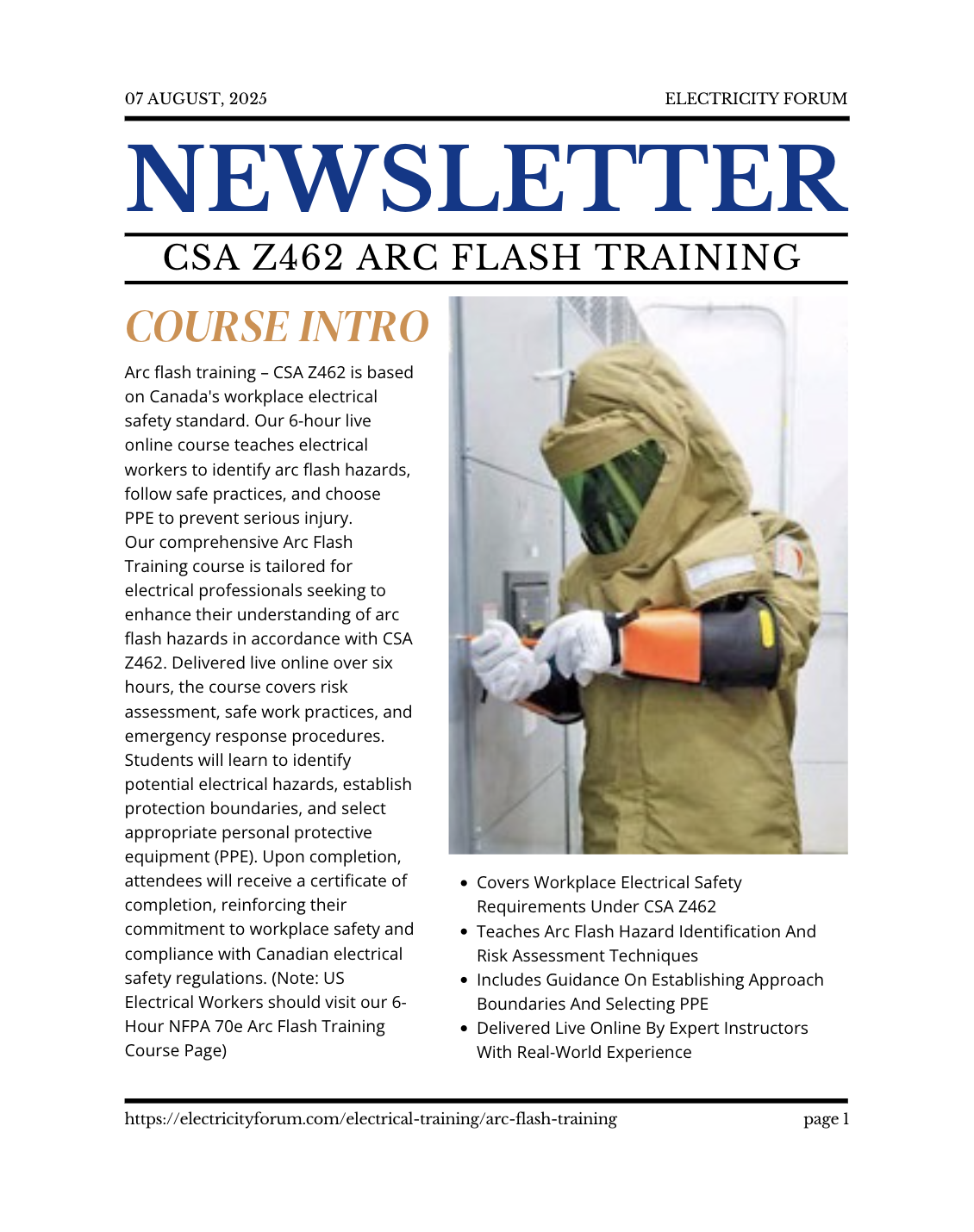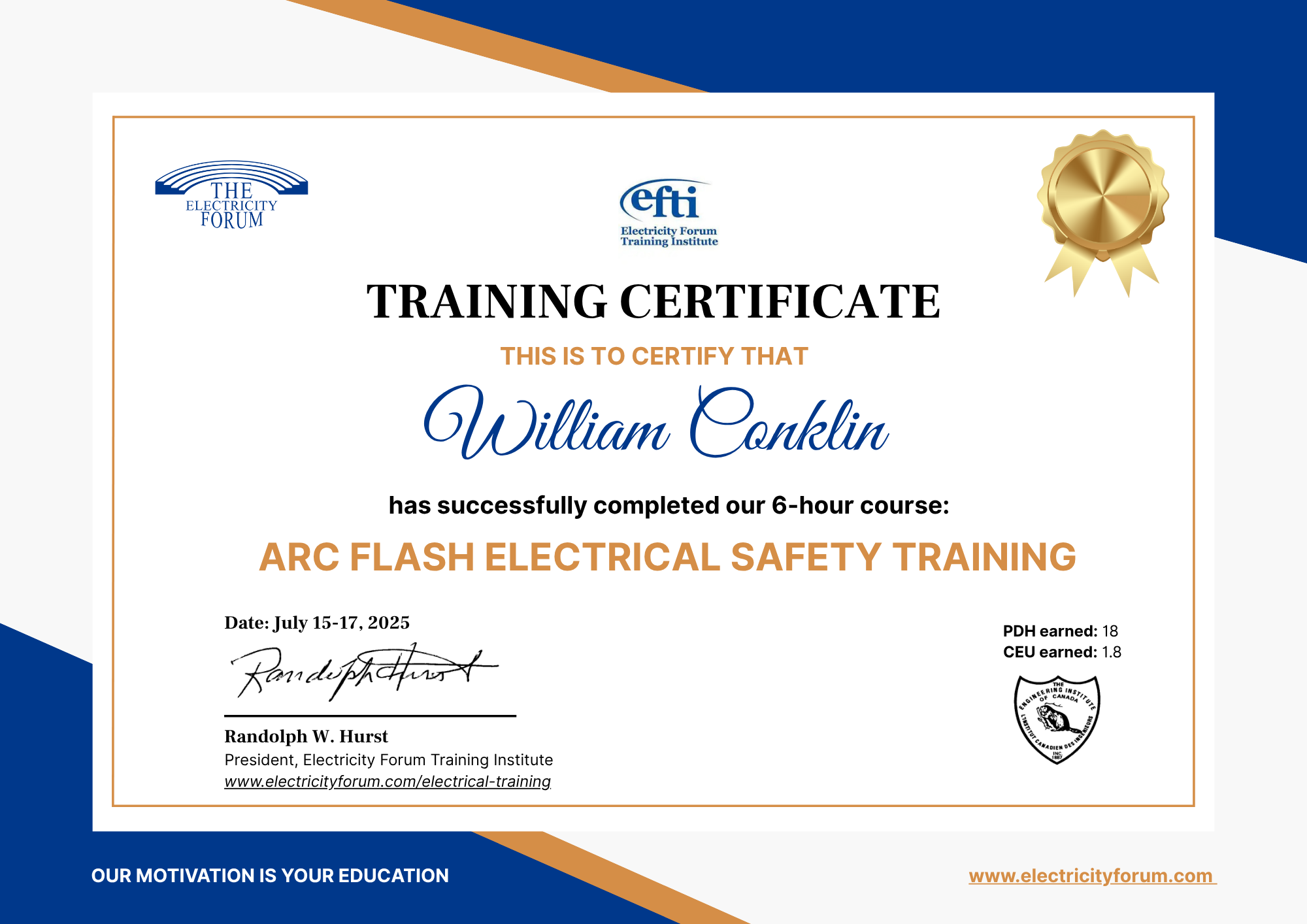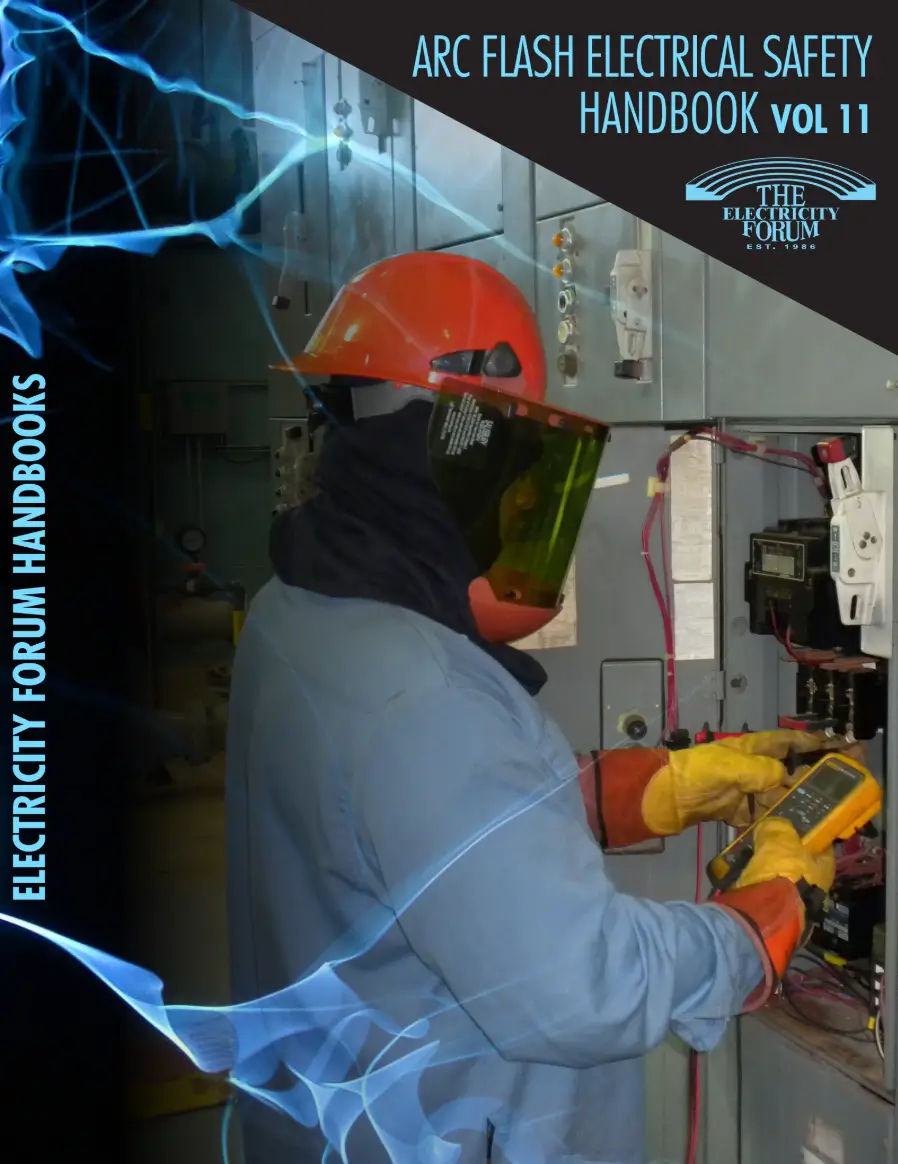Arc Flash Analysis Training teaches how to perform arc flash hazard studies, calculate incident energy, apply NFPA 70E and CSA Z462 standards, select PPE, and use IEEE 1584 methods to ensure compliance, reliability, and electrical safety.
Why Arc Flash Analysis Training Matters
Modern electrical systems evolve continuously—adding loads, modifying circuits, and upgrading equipment. Without updated arc flash and short-circuit studies, facilities risk uncoordinated protection, costly equipment failures, and life-threatening arc flash incidents.
-
Ensures compliance with NFPA 70E, CSA Z462, and IEEE 1584 by requiring hazard analysis before energized work.
-
Identifies high-risk areas and verifies proper coordination of protective devices for safer system performance.
-
Reduces downtime and maintenance costs by preventing electrical failures and improving overall reliability.
This course should be taken with our Power System Fundamentals Course - April 10, 2026
This course is also a companion to our Short Circuit Analysis/Study And Protective Device Coordination Course - April 16-17, 2026
Arc Flash Analysis Training Overview
Arc Flash Analysis Training provides electrical professionals with the knowledge and skills to conduct comprehensive arc flash hazard analysis, calculate incident energy levels, and apply NFPA 70E, CSA Z462, and IEEE 1584-2018 standards to real-world systems. Participants will learn to evaluate fault current, determine arc flash boundaries, and create compliant arc flash labels that accurately define risk and PPE requirements for energized work. This two-day, instructor-led course combines theory, calculation practice, and live software demonstrations to help professionals perform and interpret full arc flash studies with confidence.
This course emphasizes the direct link between arc flash studies, short-circuit analysis, and protective device coordination, ensuring that equipment ratings, relay settings, and system protection schemes are optimized for both safety and reliability. Participants gain practical insight into system modelling, arcing fault scenarios, and coordination analysis using professional engineering software tools. The course also includes updates from IEEE 1584-2018, highlighting the latest methodologies for incident energy and arcing current calculations.
Beyond calculations, this training teaches participants how to implement and maintain a compliant electrical safety program that integrates labelling, documentation, and worker protection policies. It addresses how to update arc flash studies when system changes occur, how to review results during safety audits, and how to ensure continuous compliance with OSHA, NFPA 70E, and CSA Z462 requirements. Participants will also learn how to develop corporate-level strategies for program maintenance and ongoing training of workers.
This Arc Flash Analysis Training course is ideal for electrical engineers, maintenance supervisors, safety coordinators, and facility managers responsible for industrial, commercial, and institutional power distribution systems. It also benefits consultants, utilities, and engineering firms that design, analyze, or maintain electrical infrastructure requiring arc flash studies and documentation.
Learning Outcomes
Upon completing this course, participants will be able to:
-
Perform complete arc flash, short-circuit, and coordination studies for industrial and commercial systems.
-
Calculate incident energy, arcing current, and arc flash boundaries in compliance with NFPA 70E, CSA Z462, and IEEE 1584-2018.
-
Create and maintain compliant arc flash labels and PPE selection programs.
-
Integrate study results into an ongoing electrical safety program aligned with OSHA and insurance standards.
-
Understand and apply short-circuit study fundamentals to improve system reliability.
-
Identify and mitigate high-risk electrical equipment through accurate modelling and coordination analysis.
-
Interpret study results to propose cost-effective engineering solutions that reduce hazards.
-
Maintain documentation, labelling, and periodic updates required for safety audits and insurance compliance.
-
Save time and reduce errors using proven software tools and data collection methods.
Related Courses

















